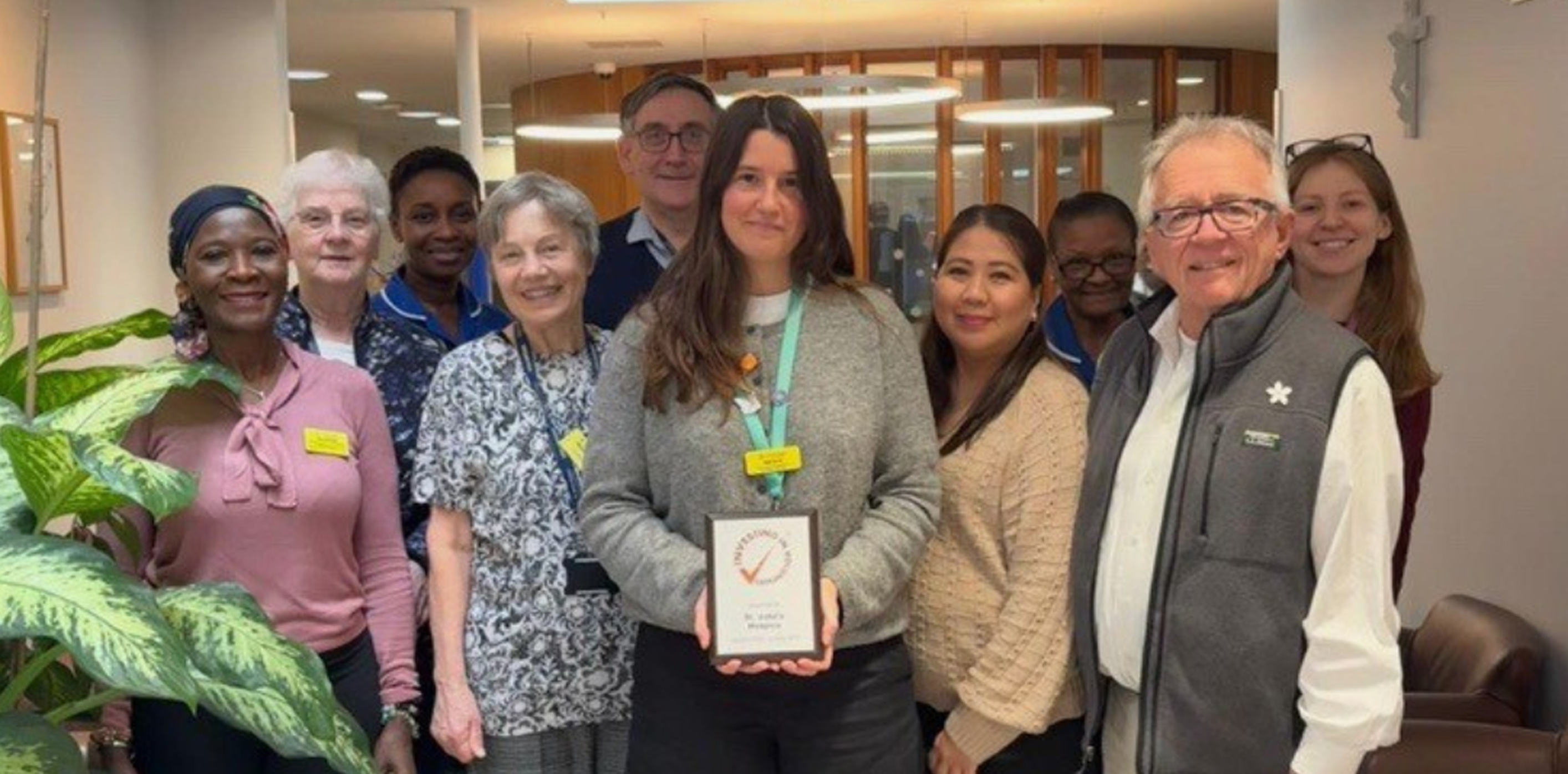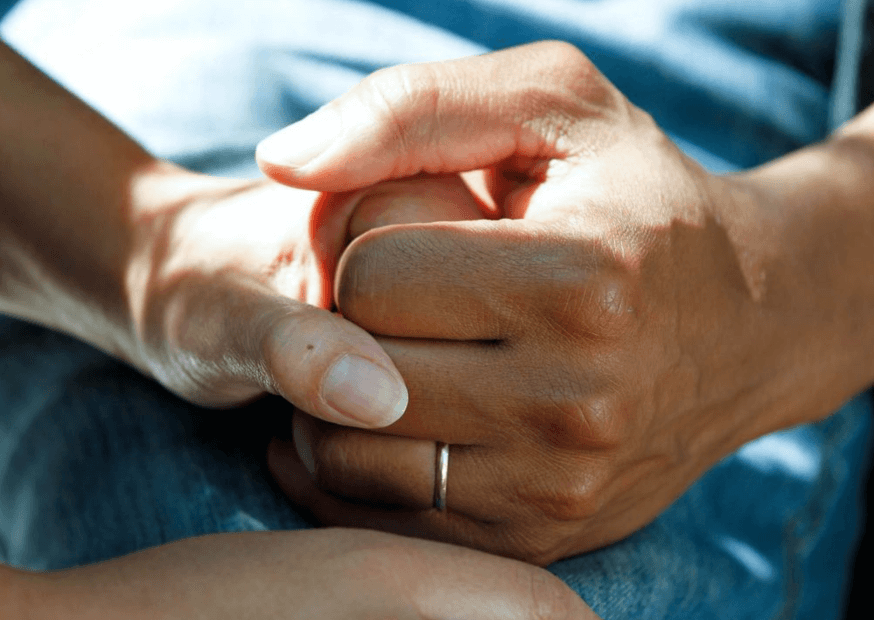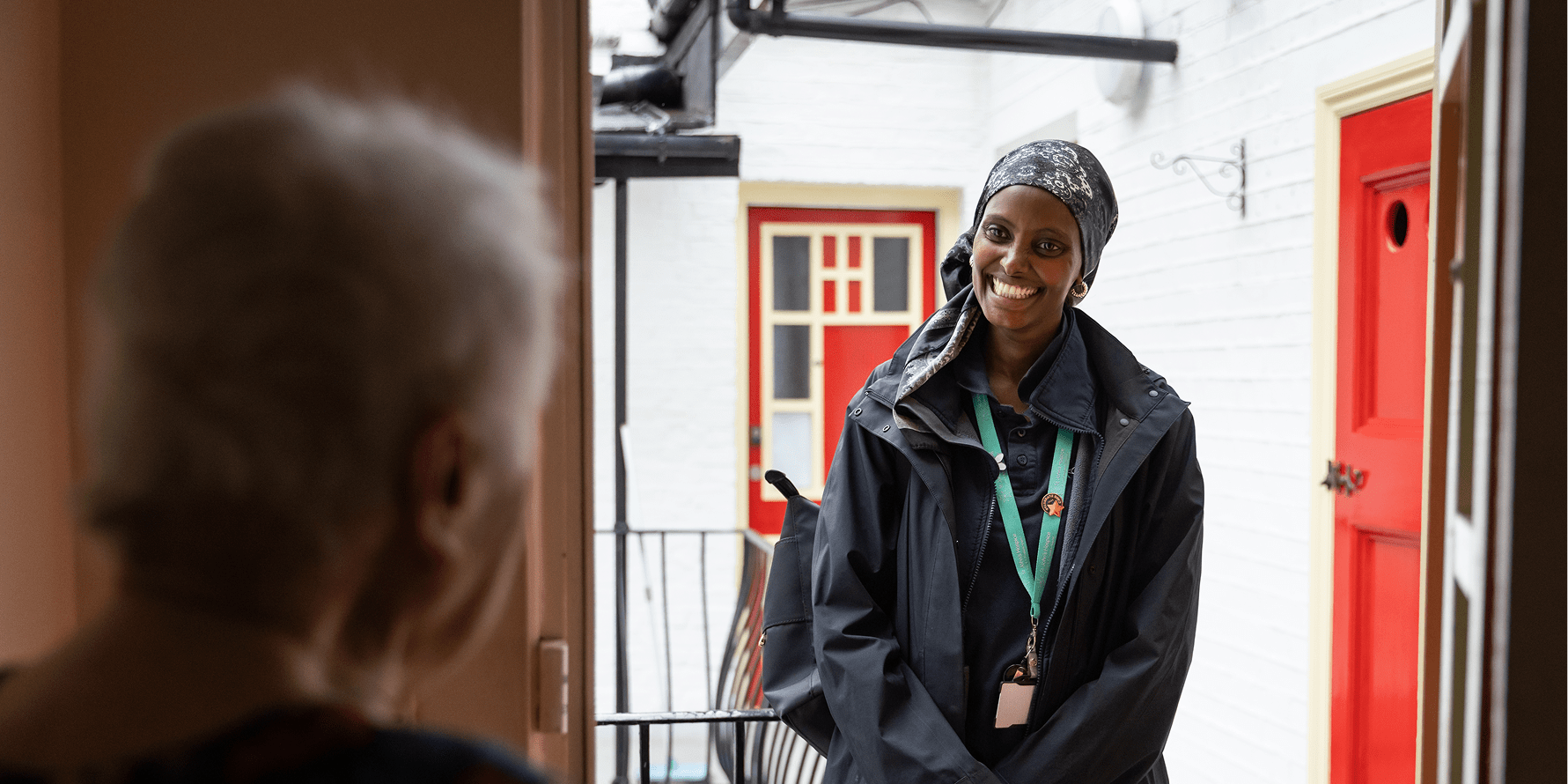Mathilde's story: Learning to accept and live with HIV
If you were alive in the 1980s you might remember a series of harrowing television adverts about HIV. 40 years later and while science has come on leaps and bounds the wider understanding of HIV remains, for many, stuck in the past. This was certainly the case for Mathilde who was diagnosed with HIV in 2006. A regular at our Hospice Day Centre, we sat down with Mathilde to discuss her HIV journey and how our Hospice helped her through the darkest of times.
In 2006 I was admitted to hospital for what they thought was pneumonia. It was night and outside the ward I overheard someone talking and they mentioned HIV. I knew they could only be talking about me.
That night I didn’t sleep. It was the worst night of my life, I just kept thinking to myself, “I’m going to die.”
The following morning the doctor came in and I just kept telling him, “I’ve got a nephew, I’m his godmother, I need to be there for him.” I just remember the doctor turning to me and saying, “You’ll see your nephew grow-up and get married. This diagnosis is not a death sentence.”
Early on in my diagnosis I spent most of my time trying to make sure no one found out about my HIV. My mum only found out I had HIV about 5 years ago despite being diagnosed nearly 14 years ago. I was living in a flat-share when I was first diagnosed and I didn’t want anyone to see me taking my medication, so I just didn’t take it. For the next few years I was going to hospital about once a year, it wasn’t just that I wasn’t telling anybody I had it, I was telling myself I didn’t have it.
I built up a stigma in myself of having this disease. Even now, unless you have been affected by HIV, through knowing someone who has it or having it yourself, most people assume it’s a death sentence. But I’m here to tell you it’s not, and that’s in spite of me often not doing what was best for me.
I had a brain haemorrhage in 2012 which led to toximatosis, an infection in the brain. My mum was there the whole time. I told her what I was going through was a stroke but the toximatosis was directly related to my HIV because I wasn’t taking my medication.
HIV is life-threatening if you don’t treat it. After my diagnosis I got really good at lying. I was so good at it I even started to believe my own lies. I was telling everyone I was okay so I convinced myself I was okay and so I wasn’t taking my medication.
I beat myself up mentally and physically by not taking my meds. I shouldn’t really be here because when I had the brain haemorrhage they gave me a 2% chance of survival. I did that to myself by not taking my meds, I made my body weak and vulnerable.
The first time I came to the Hospice was in 2006 and I was in there for about a month. Then I left and they told me to come to the Day Centre but I stopped taking my meds and stopped going to the Day Centre.
After my haemorrhage I was in the hospital and they told me they were sending me to St John’s Hospice the following Monday. That whole weekend I dreamt about food – every time I’d gone in I was very underweight but the food there is lovely. I remember getting there and they fed me so well, I ate so much compared to what I would normally eat.
S John’s Hospice saved me. I came in one day for a meeting with some of the Hospice staff, my consultant and some of the nurses. It was a meeting to discuss how to get me on the right path. I gave the Hospice a set of my house keys to allow them access if I stopped attending the Day Centre or if I didn’t answer the phone they could come and check on me. I started taking my medication at 2 pm every day, so the days I was in the Day Centre they could see me taking the pills.
The Hospice forced me to actually connect with what I was going through and set me on the path to managing and living with HIV.
I started coming to the Day Centre regularly. There was a lovely man called Dennis, who sadly passed away a couple of years ago. One day Dennis asked me if I wanted to play Scrabble. I’d never played Scrabble and he said, “I’ll show you.” So on a Thursday, Dennis and I would play Scrabble and then on Monday’s he let me join his other game with two other gentlemen called Robert and James. When you’re living with illness and disease and you’re around others who are also going through it you don’t feel so alone. We started comparing notes about what happened to us and comparing symptoms – we bonded over it. I finally felt like I’d met someone who understood. And not just from a medical point of view whose job it is to care, those people saved my life, but Dennis, Robert and James taught me to appreciate life. They helped me with the way I saw myself.
My mantra now is ‘make one person smile everyday’. It doesn’t matter what it is, saying ‘hello’ to someone, helping someone with their bags. The reason for that is Dennis – he reached out to me and let me know someone was there who saw me.
We are only able to support patients with life-limiting illnesses like Mathilde through the generosity of our donors. If you would like to support our essential palliative care please click here to donate – thank you.





